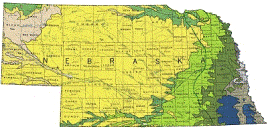United States Geological Survey

United States Geological Survey: Staff Publications
Document Type
Article
Date of this Version
1989
Citation
Quaternary International, Vol. I, pp. 19--34. 1989.
Abstract
Uranium-trend dating is an open-system method for age estimation of Quaternary sediments, using disequilibrium in the 238U–234U–230Th decay series. The technique has been applied to alluvium, colluvium, loess, till, and marine sediments, in this study we tested the U-trend dating method on calcareous marine terrace deposits from the Palos Verdes Hills and San Nicolas Island, California. Independent age estimates indicate that terraces in these areas range from –80 ka to greater than 1.0 Ma. Two low terraces on San Nicolas Island yielded U-trend plots that have a clustered array of points and the ages of these deposits are indeterminate or highly suspect. Middle Pleistocene terraces and one early Pleistocene terrace on San Nicolas Island and all terraces on the Palos Verdes Hills gave reasonably linear U-trend plots and estimated ages that are stratigraphically consistent and in agreement with independent age estimates. We conclude that many marine terrace deposits are suitable for U-trend dating, but U-trend plots must be carefully evaluated and U-trend ages should be consistent with independent geologic control.
Included in
Geology Commons, Oceanography and Atmospheric Sciences and Meteorology Commons, Other Earth Sciences Commons, Other Environmental Sciences Commons


Comments
U.S. government work